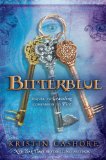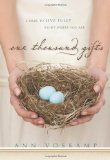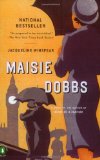It’s time for Sonderling Sunday again – Where I indulge in my nerdy passion for the curiosities of language. I’ve got a different picture this week, from a package that arrived yesterday that had me jumping up and down in excitement:

No, I’m not changing the book I’m using as a bizarre German phrasebook. But, you see, when Shannon Hale, one of my very favorite authors, posted on her blog various international covers of one of my very favorite books, Book of a Thousand Days, I couldn’t resist e-mailing her and telling her about Sonderling Sunday and asking if she might have a copy of Das Buch der Tausend Tage to send me, to be my next book to go through after I finish Der Orden der Seltsamen Sonderlinge. While she was at it, she sent an Advance Review Copy of Palace of Stone, sequel to Princess Academy. I’m so excited!
Mind you, I don’t need more German books. I’ve already shown off my collection. Der Orden der Seltsamen Sonderlinge has started me off on something I’m totally enjoying, in my own quirky way. I’m looking forward to going through some books originally written in German, like Momo, by Michael Ende, or Cornelia Funke’s books. But Das Buch der Tausend Tage! I’m so excited!
Anyway, that’s a preview of things to come. Now I’m on Chapter Six in Der Orden der Seltsamen Sonderlinge, the German translation of The Order of Odd-fish, by James Kennedy. This begins on page 53 in the English version and Seite 70 in the German.
Now, I’m afraid I may have been daunting non-German speakers by beginning with a full paragraph. No, you do not have to speak German to enjoy this. I was going to start today with merely sentences or phrases. However, the first paragraph is simply too choice! What turns of phrase! What things I must learn how to say in German! I mean, come on: “duct tape,” “indignant,” and “sputtering”! So here is the first paragraph of Chapter Six:
Colonel Korsakov’s plane, the Indignant, resembled a flying box cobbled out of bits of a dozen other planes, lashed together with chains, frayed rope, and duct tape. It seemed ready to collapse at any moment, but somehow kept sputtering through the sky, coughing and wobbling, plowing through the thunder and rain.
Here that is, rendered in German:
Oberst Korsakovs Flugzeug, die Echauffierte, ähnelte einer fliegenden Kiste, die aus Einzelteilen von einem Dutzend anderer Flugzeuge zusammengestellt worden war, mit Ketten, Faserseil und Klebeband. Sie drohte jeden Augenblick auseinanderzufallen, flog jedoch wie durch ein Wunder weiter und kämpfte sich stotternd und schwankend durch Sturm und Regen.
Such goodies! We have:
“Indignant” = Echauffierte
“resembled” = ähnelte (Hmm. This reminds me of Ahnung, which means “Idea.” I learned Ahnung from reading Harry Potter books in German. They kept saying they had keine Ahnung, “no idea.”)
“box” = Kiste
“cobbled” = zusammengestellt (“together-asked”)
“chains” = Ketten
“frayed rope” = Faserseil (Google says that means “fiber cable”?!?)
“duct tape” = Klebeband (This just comes out as “adhesive tape.” Don’t they have a special word for duct tape?)
Ah! At 19 letters, a candidate for longest word of the day: “collapse” = auseinanderzufallen (“out of one another to fall”)
I like “somehow kept sputtering through the sky” translated as flog jedoch wie durch ein Wunder weiter (“flew however as through a wonder farther”)
und kämpfte sich stotternd und schwankend durch Sturm und Regen is the last phrase, which translates more literally as “and fought stuttering and fluctuating through storm and rain.”
Ah, lovely words just keep happening! I will refrain, however, from giving you the next complete paragraph, and settle for some choice words.
“mothbally” = Mottenkugeln (“moths scoops.” I know kugeln from ordering ice cream!)
“slapped” = geohrfeigt (“boxed on the ears”)
“domestic clutter” = Krimskrams (Google translates this as “odds and ends.” Great word!)
“dangled” = baumelte (This has the root for “tree,” baum in it.)
“crawlspace” = Kriechraums
“bomb bay” = Bombenschacht
Hmm. English says the colonel’s oboe hung in the bomb bay. German says Die Oboe des Obersts hung in its case in the bomb bay. Perhaps Germans are simply too appalled to think that an oboe might be hanging out of its case?
“blunderbuss” = Donnerbüchse (“Thunder rifle” I wonder if “blunderbuss” is a warped version of how this sounds.)
I like the way this sounds: “shoebox” = Schuhschachtel
“cufflinks” = Manschettenknöpfen (“Men’s cuffs buttons”)
“jawbone” = Kieferknochen (Fun to say!)
“untidy bag of bolts” = unordentlichen Blechkiste (“unorderly tin box”)
“laughingstock” = Gespött
“antennae” = Fühler (“feelers”)
“beady eyes” = Knopfaugen (“button eyes”)
“Fleet of Fury” = Furiose Flotte (Ah! Alliteration retained!)
“sleek” = schlanke
“dive” = Sturzflug (“fall-fly”)
“swatting” = scheuchte
“tumbled” = taumelte
“not much of an excuse” = zwar ein recht fadenscheiniger Vorwand (“indeed a right flimsy excuse”)
“crushed” = zermalmt
“streaming fire” = mit einem Feuerschweif (“with a fire-tail”)
“conqueror” = Bezwinger
“For the love of Lenin” = Bei Lenins Liebe (Oo, that one’s even better in German!)
“silly things” = alberne Dinge
Huh? “dandelions” = Gänseblümchen (“gooseflowers”)
“burping” = zirpte
Okay, this one just is NOT as good in German! “Babies! Beautiful, bouncing babies!” = Babys! Sü?e umherkrabbelnde Babys! (“Babies! Sweet crawling-around babies!”)
“fussy British musicians” = pedantischen britischen Musiker
“eaten” = verschlungen (“swallowed”)
That’s the end of Chapter Six. Next week, we’ll have Ken Kiang’s reaction to his apparent evil triumph.
Summing up:
Longest word: auseinanderzufallen
Most fun to say: Schuhschachtel
Best new word: Krimskrams
Best figure of speech: “as through a wonder”
Translation with most improvement: Bei Lenins Liebe
Translation with least improvement (indeed, the opposite of improvement): Babys! Sü?e umherkrabbelnde Babys!

















